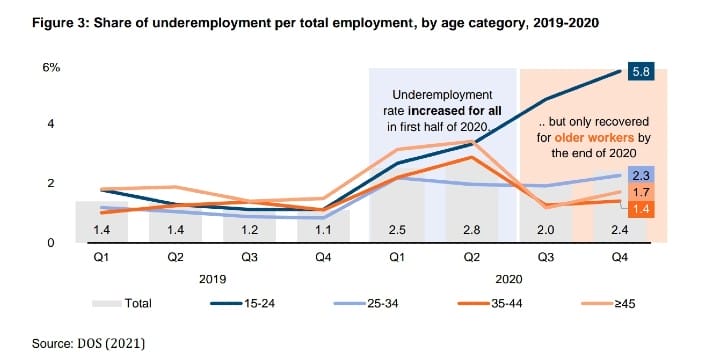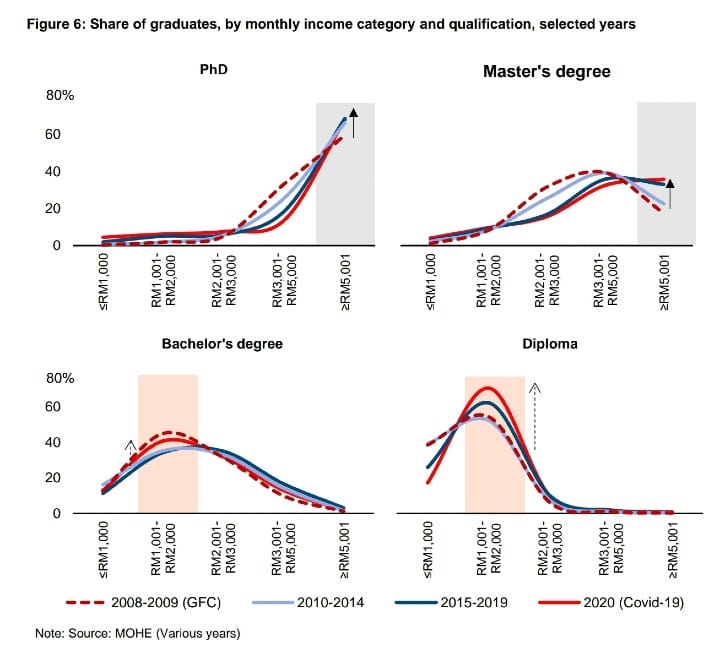Confirmed: Young Professionals Now Earn Less With Lower Starting Wages, Less Salary Raises, And It’s Not Getting Better
It also takes about a decade for wages to grow after a recession.

Subscribe to our Telegram channel for the latest stories and updates.
Working adults have been complaining of stagnant wages since… forever, it feels like, but most certainly during the past few years. As the cost of living shoots up, yet salaries climb at a snail’s pace, it always feels like we’re running a losing race.
READ MORE: Angry ‘Utagha’ man goes off on a rant about stagnant wages in Malaysia
Young people joining the workforce are also facing higher financial pressures. A recent report notes that Malaysian fresh graduates are barely making minimum wage in 2020, and given that our national federal wage is pretty dismal, that’s peanuts.
But there’s worse news.
Young adults have a lower starting pay…
In the midst of Covid-19 season, wages have shrunk even more. According to an assessment from non-profit Khazanah Research Institute, there has been an increase of Bachelor’s degree and diploma holders earning between RM1,000 and RM2,000.
A recession or an economic downturn reduces employment opportunities and tend to suppress wages.
Siti Aiysyah Tumin, a researcher from Khazanah Research Institute
During 2020, younger working professionals were underemployed, meaning that they worked less than 30 hours per week, taking up part-time employement instead.
However, as the MCO ended and businesses were allowed to operate fully again, only older workers saw a rise in being re-absorbed back into full-time employment, while those under the age of 24 continued to be underemployed in the low wage category.

(Credit: KRI)
READ MORE: Malaysian Fresh Graduates Are Barely Making Minimum Wage In 2020
…and less pay raises, too.
So not only are young adults getting less employment opportunities, with lower starting pay, they are also getting less pay raises.
For the last ten years, the growth of real wages, while accounting for inflation, between the ages of 20-29, were significantly slower than their older counterparts.
While the national average of wage growth per year is 3.6%, young professionals in the 20-24 year old range only saw a 3.0% growth, while those in the 25-29 year old range only saw a 2.0% growth per year!
The difference in qualifications
During times of crises, such as the 2008-2009 global financial crisis, even those holding degrees cannot be guranteed to have well-paying jobs.
In fact, bachelor’s degree holders and diploma holders have seen a significant increase– almost double– in the low-income group.
Almost 40% of bachelor’s degree holders earn between RM1,000-RM2,000; while nearly 80% of diploma holders are in this low-income category.

(Credit: KRI)
The rates are also not adjusted for inflation, meaning that while 40% of bachelor’s degree gradutes in 2008 were earning RM1,000-RM2,000; a decade later they are still earning the same amount while dealing with a much higher cost of living and inflation.
Upskill for a shot at better pay
Still, as the country moves into a primarily services-based economy, at least there’s some opportunity to upskill for free.
The government is providing free programmes to help the rakyat land a better job that requires more specific skills which you can check out here and here.
For more updates, follow us on Facebook, Twitter and Instagram!
Anne is an advocate of sustainable living and the circular economy, and has managed to mum-nag the team into using reusable containers to tapau food. She is also a proud parent of 4 cats and 1 rabbit.








